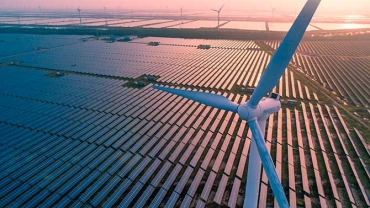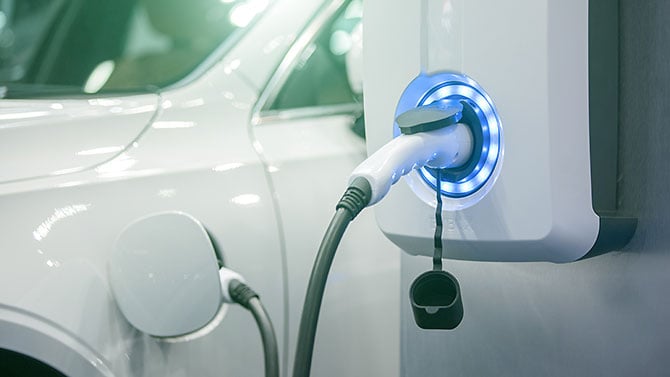
Improving European regulations for smart charging
What is the problem?
Expertise and innovation centre ElaadNL wishes to contribute to the development of infrastructure for smart charging in the Netherlands. Smart charging makes smart use of the possibility of storing electricity in the batteries of electric vehicle users in order to achieve stability on the grid. With smart charging, the batteries of electric vehicles charge automatically when there is less demand for electricity and discharge electricity into the grid during periods of high demand.
ElaadNL asked PwC to identify the barriers and gaps in European and national regulations related to smart charging. The project was co-financed by ElaadNL and Renault as part of one of the first European Innovation Deals. Prior to this, PwC wrote a report on the Dutch situation for ElaadNL: Smart Charging of electric vehicles. Institutional bottlenecks and possible solutions.

What is the solution?
PwC analysed regulatory barriers to smart charging in the Netherlands, Germany, France and Sweden - these countries have a large number of electric vehicles and charging stations. The study included a qualitative assessment on the impact of regulation on the business case for smart charging.
PwC talked to experts from different organisations in the value chain (from the different countries and at the European level): transmission system operators, distribution system operators, electricity suppliers, battery manufacturers, EV manufacturers, EV charging point manufacturers and operators, and governments. The analysis results and suggestions for solutions were tested in workshops with representatives from the entire value chain. PwC worked on this solution with a core team of professionals in the Netherlands as well as in the other countries involved. The team brought together experts on energy economics, regulation in the energy and automotive industry, and energy taxes.
What is the result?
The PwC analysis report Regulatory barriers for Smart Charging of EVs and second life use of EV batteries, describes, among other things, that the current regulations do not take into account the use of batteries for temporary storage. As a result, the owners of electric cars may pay energy taxes twice while providing their car battery for smart charging purposes. Other obstacles in the regulations concern the definition of roles and responsibilities of market players. For example, to what extent can regulated network operators deal with the commercial business cases of smart charging?
In the report, PwC makes recommendations for regulatory changes at both national and European levels. The report was shared by ElaadNL with national governments and the European Commission (EC). The EC has partly incorporated the recommendations into the amended EU Directive 2019/944 on the internal market for electricity, which is part of the Clean Energy for all Europeans package.
Related content


Duurzame mobiliteit
Ontwikkelingen als autonome voertuigen, drones en elektrische voertuigen zorgen ervoor dat mobiliteits-transformatie wereldwijd hoog op de agenda staat.

Sustainability
Met de groei van de wereldbevolking en de mondiale welvaart neemt ook de vraag naar natuurlijke grondstoffen als water, energie, mineralen/metalen en voedsel...
Contact us

Partner, Energy transition and sustainable energy, PwC Netherlands
Tel: +31 (0)65 160 08 61

















